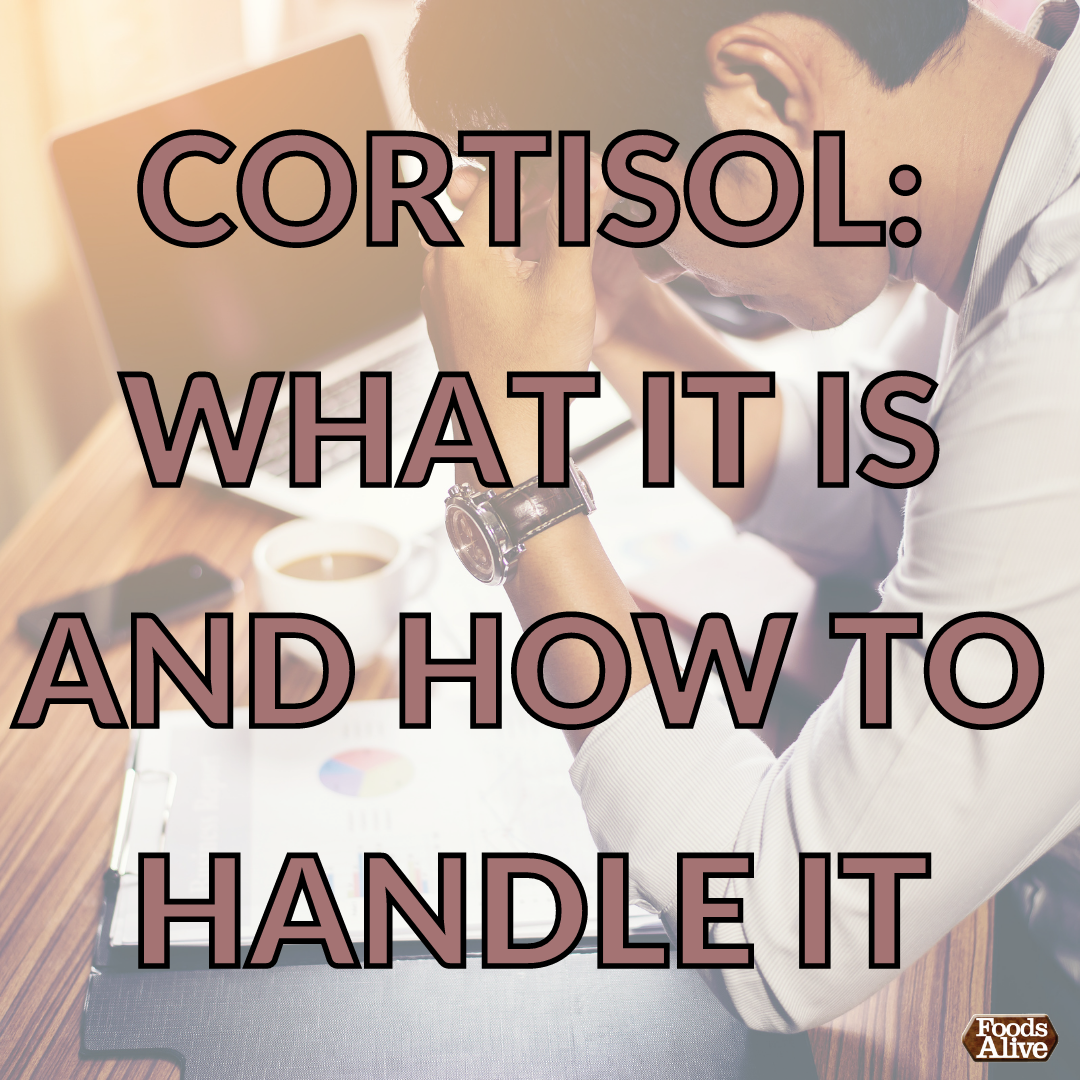Everyone gets stressed, but do you know what happens to your body when you become stressed? When you experience a stressful situation, your body releases a hormone called cortisol. This hormone has its place and its uses, but often, things may fall out of balance. What happens when they do?
Cortisol is released when you are under stress, such as during an exam, in the midst of a workout, or when you are frightened. Many people associate these things with adrenaline, which is correct, but cortisol is also a prominent factor. Adrenaline gives you the power and energy to utilize the fight or flight response. Cortisol helps regulate your bodies response. Once the stress passes, cortisol levels should go back down, reinstating a sense of calm.
However, that isn’t always the case. There are several things that may cause cortisol levels to be too high. Whether that is extended periods of stress due to external factors, worry in the mind, or physical abnormalities such as tumors, cortisol may be high.
High levels of cortisol cause a great deal of symptoms over time depending on how long these levels are too high and the exact height of the levels. Short term effects of high cortisol include headaches, disrupted sleep, and anxiety or depression. Moderate complications include memory problems or ‘brain fog’, weight gain, digestive problems, and hormonal imbalance. Severe side effects may include type 2 diabetes, Cushing’s Disease, and heart disease.
These effects can be avoided. Just as stress can be managed, so can cortisol. And there are several ways to do so. However, if you experience extreme symptoms, talk to your doctor about testing and treatment. If you are feeling stressed due to circumstance or only feeling mildly anxious, the methods below may help.
The first and foremost method of reducing cortisol is reducing stress. Without the stressor, your body sees no reason to release cortisol. There are many ways to reduce stress, and it is important to find which methods work for you and your lifestyle.
Many people turn to a hobby in order to reduce stress. There are dozens to try, some as simple as cooking or baking, an old skill like knitting and crocheting, or even stained glass artwork. If you need some inspiration, there are hundreds of resources online, especially on the popular site Pinterest. Here you can find everything from gardening tips to dressmaking and everything in between!
Another great way to lower cortisol is through low-impact exercise. Intense exercise can increase cortisol in the moment, but cortisol levels should drop quickly after a sweat session is over. The higher your fitness level, the lower the spike in cortisol will be. Low intensity workouts do not cause such a spike in cortisol, which is great for beginner fitness enthusiasts.
All exercise has shown promise in lowering cortisol levels during sleep. But it is important to note the timing of workouts. Cortisol levels are naturally higher in the morning, and they drop throughout the day until they reach their lowest in the night. This is why working out in the morning or afternoon is best. Evening workouts may raise cortisol levels, making a good night's rest more difficult to achieve.
Many people choose to turn to spirituality for comfort and stress relief. Whether this be attending church services, volunteering for religious activities and events, or pursuing your spirituality individually, these can all offer fulfillment and peace. You may also choose spiritual activities aside from religion such as meditation or journaling. These are good for mental health and growth, and they may help reduce stress.
Dealing with mental health on your own is difficult and scary. It is crucial to have a good support system of friends and family. While you are stressed, be certain to spend time with the people you love. Therapy is also a great option. Often, health insurance will cover the cost of mental health appointments, and talking with a licensed professional may help you to get any mental health concerns under control.
There are also important physical factors that can help manage stress. High levels of cortisol can disrupt regular sleep patterns, so you may have to put in some extra effort to get a good night’s rest. You may want to try cutting caffeine 4-10 hours before bed, limiting screentime 1-3 hours before bed, and trying to stick with a consistent sleep schedule. Quality sleep is a great way to help reduce stress, and therefore cortisol.
A healthy diet can also affect your mental health. The gut is often called the second brain, so it is vital to take care of it. High levels of cortisol can be detrimental to digestive health, so taking extra care in your diet may be necessary. You can do this by eating probiotic foods, avoiding excess sugar, and eating enough fruit and vegetables. Hydration is also crucial, and it affects everything in the body.
Stress in unfortunately abundant in the world today. Be sure to take care of yourself and your mental health. You may not even realize the effects it may be having on your physical health. High cortisol is manageable, but be certain to take any concerns to a medical professional.
Research






